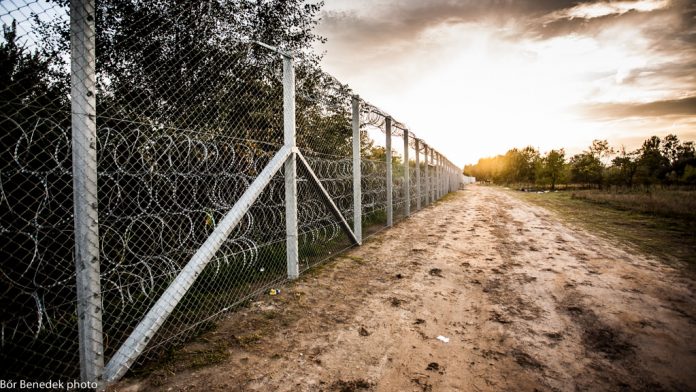An electric fence, razor wire and police patrols are used by Hungary to protect its border with Serbia. The border is one of the most fortified in Europe.
Hungary has also set up two official “transit zones” – also heavily guarded and closed to journalists and rights activists. Only one person per day can enter to officially begin the asylum process. And then they live in shipping containers locked inside the zone for months while their application is being processed.
Now Hungary is out to make it even more difficult to apply for asylum. As reported by The Guardian, Hungarian lawmakers on June 5 are scheduled to debate plans to go after the people trying to help asylum seekers to navigate the application system. The draft law could lead to activists and lawyers facing jail time for advising asylum seekers on their rights.
As reported by The Guardian, the vague language of the bill as it stands means anyone who provides advisory or counselling help to refugees could get into trouble. Also, if an asylum seeker makes a claim that is later rejected by Hungarian authorities, even if they entered the transit zone legally, according to the law anyone who helped the person make the claim could be punished.
The Hungarian Helsinki Committee and Amnesty International said on June 4 that the bill “criminalises humanitarian and legal assistance,” threatening them with prison terms of up to a year.
Helsinki Committee co-chair Marta Pardavi told reporters that the bill “has no place in a civilised country, in the EU, in a state under the rule of law”.
The bill, however, is part of right-wing populist Prime Minister Viktor Orban’s campaign to prevent Hungary from “becoming an immigrant country.”
Orban also maintains that Hungarian-American billionaire George Soros and the civic groups he supports seek large-scale immigration of Muslims into Europe, charges they deny.
According to the Budapest Business Journal, the United Nations High Commissioner for Refugees (UNHCR) issued a statement criticising the bill because it would deprive people who are forced to flee their homes of critical aid and services, and further inflame tense public discourse and rising xenophobic attitudes,
In response, Hungary’s Minister of Foreign Affairs and Trade Péter Szijjártó labelled the UNHCR statement “outrageous” and unfounded.
The latest to step into the row is Dunja Mijatović, the newly appointed Council of Europe Commissioner for Human Rights, who released a statement on June 1, published on her website, strongly criticising the draft.
“The draft legislation recently submitted by the Hungarian government to the parliament, which provides for criminal law sentences, including imprisonment, for those ‘facilitating illegal immigration’ constitutes a worrying human rights development,” the statement reads.
According to Mijatović, if the bill is adopted, the new provisions would result in further arbitrary restrictions to the indispensable work of human rights NGOs and defenders and leave migrants without the essential services provided by such NGOs.

